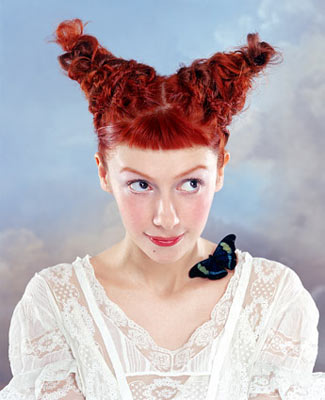Joseph Haydn composed
Orlando Paladino for the theater at Esterháza, in honor of the expected visit of dignitaries from Russia in 1782. The guests never showed up, but the opera was performed on the name day of Haydn's employer, Prince Nikolaus Esterházy. The rediscovery of Haydn the opera composer led to a modest revival, and while certainly not common, recordings and productions are occurring. This live recording's only competition is the version conducted by Antal Dorati, now available only as part of a box set of the complete Haydn operas, a legendary series of 1970s recordings that first brought attention to Haydn's operas. Nikolaus Harnoncourt's reading has several advantages, including the experience of the past 30 years of the HIP movement. It is also nice to be able to purchase only one opera instead of a four-opera set, although the Dorati set does reduce the cost of each opera slightly.
The most durable operatic stories have been set many times, in serious and comic guises. Haydn's literary source, Ludovico Ariosto's endlessly fascinating fantasy epic
Orlando furioso (available in
English translation), was mined for
countless operatic adaptations. What Haydn made of it was based on the libretto (written by Carlo Badini and revised by Nunziato Porta) of the Pietro Guglielmi opera he was originally instructed to present for his employer, a
dramma eroicomico that combines the epic characters from Tasso's book with comic masks from
opera buffa. It is a combination of high and low we know also in many other operas of the period, including those of Mozart.

Patricia Petibon, soprano |
Representing the serious side of this opera, soprano
Patricia Petibon is impressive as the ever-seductive Angelica, with a pianissimo she makes disappear into the texture of the orchestra and then reappear in one of many fine arias (no. 33 --
Aure chete, verdi allori). It is a ways from the cooky soubrette she played as Sœur Constance in the
DVD of Dialogues des Carmélites, which I admired last spring. Tenor
Michael Schade is in generally good voice as Orlando, with some roughness around the edges. As it turns out, both Schade and Petibon sang for the Salzburg Festival celebration of the Mozart Year, with the Vienna Philharmonic. Again there, Petibon was a marvel for the ears. Later this month, she will sing the role of Olympia in a Robert Carsen production of
Les Contes d'Hoffmann at the Opéra national de Paris, with Rolando Villazón as Hoffmann (premiering on January 25).
The low couple is dominated by tenor
Markus Schäfer, who gives a steal-the-show performance that is both a vocal blockbuster and a comic triumph. As Pasquale, Orlando's cowardly and ever-hungry squire (sound like Papageno?), he has hilarious turns in the duet (no. 32 --
Quel tuo visetto amabile) with the shepherdess Eurilla (soprano Malin Hartelius), with its ridiculously lewd sighs; his faux-military aria (no. 30 --
Vittoria! Vittoria!), a parody of an opera seria convention; a buffo aria (no. 40 --
Ecco spiano) with virtuosic displays of his musical feats on the violin (not even a castrato can sing as well, he sings, soaring high into falsetto); and a patter aria (no. 17 --
Ho viaggiato in Francia, in Spagna), in which Schäfer punctuates his line with whistling.
In the supporting roles, baritone
Christian Gerhaher sings with appropriate bluster as Rodomonte, and tenor
Werner Güra is a sweet-voiced Medoro, who becomes Angelica's lover. This is a live recording, although the tracks were apparently selected from five consecutive performances (July 11 to 15, 2005) in the Stefaniensaal during the Graz Festival. As expected, there are a few stray problems here and there, including audience noise and some dropped notes. Harnoncourt's style is sometimes impetuous (erratic?) of tempo, as in the opera's opening sinfonia, which can be either exciting or unnerving. Rounded out by fine playing from Concentus Musicus Wien, this 2-CD set is enjoyable listening.
Deutsche Harmonia Mundi 82876 73370 2






















































No comments:
Post a Comment